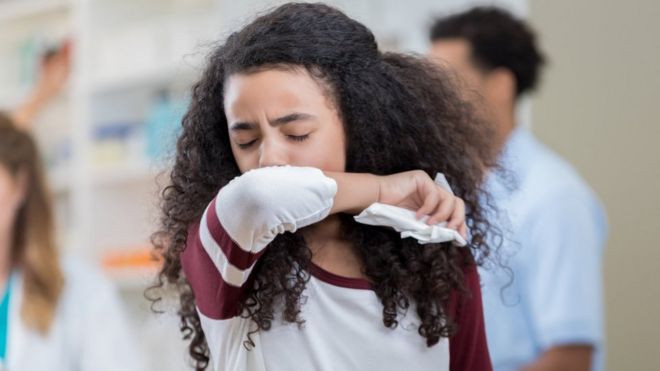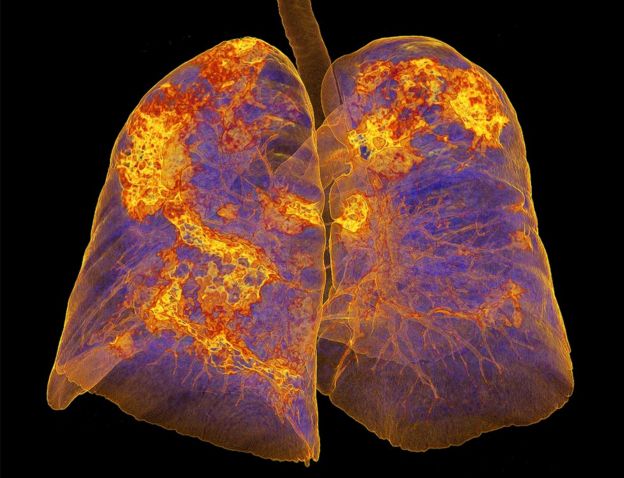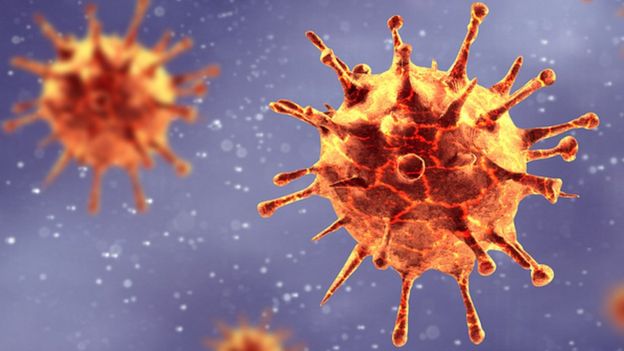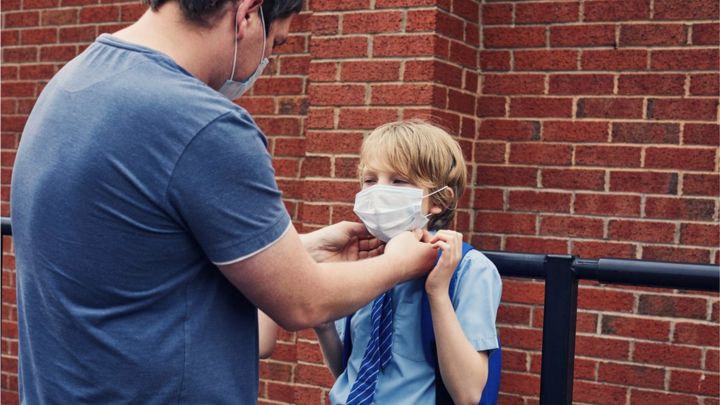Coronavirus: Can I still get my hair cut at home? And other questions
- Published
More and more people across the UK face tougher restrictions as the government tries to stop Covid spreading.
Here are some of your questions about England's new three-tier system of restrictions, and other related topics.
Questions and answers
The three-tier system
Your questions
Skip The three-tier system-
In Tier 2 can I enter someone's house if I am visiting for a service such as an at-home hairdresser or beautician? From Emma
-
My son is in a mental health hospital in York (Tier 2), but has overnight home visits twice a week. Our home is now in a Tier 3 region so can his visits continue? From Andrew Wilson, Penistone
-
As my area has moved into Tier 3, can I go on a half term break as it is apparently not illegal but advised not to? The location is Center Parcs near Penrith. My concern is that as it is just advice I will not be able to get a refund. From Keith Hill, Rochdale
-
My sister and brother both live in neighbouring, but different, Tier 3 zones. Can they meet up anywhere? From Jon Scott
-
My 18-year-old daughter and her friend were planning to go to London at half term to do some filming for their A-level film project. It’s just been announced that we’re moving into Tier 3. Does that mean they can no longer go? From Sally Pomfrey, Sheffield
-
My daughter is at Sheffield University and is disabled. Sheffield is Tier 3. As her parents (in Tier 1) are we able to visit her as carers? From Claire Beressi Jones, Cambridge
-
I live in Tier 2. Can I meet my sister who lives in Tier 1 at a Tier 1 restaurant indoors? From Bruce Barton
No, this would not be allowed.
If you live in a Tier 2 (high alert) area, you are expected to follow the rules for that area, wherever you are in the UK.
For Tier 2, this means you are not allowed to mix with anyone from another household indoors, whether that is in their house, or at a venue such as a pub or a restaurant.
You could still meet with each other anywhere outside, as long as you are not meeting in a group of more than six people.
-
I am in Tier 2 (London) but going to a funeral in Tier 1 (Hampshire) tomorrow. Do I follow Tier 1 rules? From Colin, London
-
My mother is 71 and recently bereaved and emotionally very vulnerable. Can I visit her in Denbighshire from West Cheshire? From Andrea Kearney
-
I am in Tier 1 and in a support bubble with a person who is in Tier 2. Should I follow the Tier 1 rules or the Tier 2 rules? From Sarah
Recent changes
Your questions
Skip Recent changes-
If my partner and I both live alone in separate houses can we stay at each other’s? From Luke in East London
-
I work Saturdays and sometimes Sundays. Can my parents or my sister still come to my house to look after my children? From Michelle in Brent, London
-
Will the new London restrictions apply to all London boroughs, when in Enfield our case numbers are below the national average? From Ruth Anthony in Enfield
-
I live in London and on Friday I host a friend coming from Germany. What happens if he is coming to Tier 2? From Davide, London
Germany is on the UK’s current travel corridor list, meaning that people who visit from the country do not have to self-isolate on arrival in the UK.
However, your friend cannot stay in your house from 00:01 BST on Saturday 17 October, unless they are part of one of the exceptions to the rule stopping people from different households meeting indoors - such as being in a support or childcare bubble.
You can still meet your friend outdoors, including in a garden or other outdoor space.
-
With regard to Essex moving to Tier 2, what about the separate borough of Thurrock - will that be in Tier 1 or 2? From Sean Coombes , Corringham, Essex
-
My in-laws have health problems and are about to have work started in their house. We can't form a support bubble with them as there are two of them and four of us, but can they visit our house during the work? From Andy Corbett
Job Support Scheme
Your questions
Skip Job Support Scheme-
I work in construction and have been furloughed for a number of months. Does the announcement apply to me? From Adam Wilson
-
I have a part-time job working 12.5 hours per week. I am furloughed and my employer is not likely to bring staff back soon. Where do I stand? From Ian Pettey
-
My husband works for an exhibition manufacturing company. Restrictions on people gathering mean they have no work. How will the workforce survive? From Anon
Kevin Peachey BBC personal finance correspondentThis is at the heart of concerns raised about the new Job Support Scheme. If a business is not able to operate at all, what happens next? There are no clear answers.
The government argues that the scheme is designed to protect jobs in viable businesses. Many businesses say they would be viable, if only their work had not been reduced by government restrictions.
Somehow, to keep people on, businesses will not only need to find some work for people but will also need to carry the burden of a bigger part of their wages.
-
Nothing has been said for those like me who are contractors via limited companies. We have received little support so far. What's next? From Tariq Saleem
Kevin Peachey BBC personal finance correspondentCampaigners, supported by influential MPs, have argued that three million people miss out on government support, and will continue to do so.
They include the newly self-employed, many freelancers, some people on zero-hours contracts, and company directors who have set up as limited companies. That is because these groups are excluded from the support grants for the self-employed.
The likelihood is you pay yourself a small salary and then take the rest of your income in dividends. You may only be entitled to support for the PAYE salary element under the Job Support Scheme, but not the rest, just as under the furlough scheme.
The NHS Covid tracing app
Your questions
Skip The NHS Covid tracing app-
Currently the NHS tracing app requires IOS13.5 or above to install, so it is not compatible with older phones. Is there a workaround? From Taraka
-
My wife and I currently live apart until I retire. I live in Cumbria, she lives in Fort William. Which tracing app should I use? From Nick Jowett, Burgh-on-Sands, Cumbria
-
I have a bar and restaurant and I have just watched BBC news report on the new NHS app and QR code. Where do we obtain the QR code? From Steve Capewell, St Columb, Cornwall
-
I have hearing aids which are connected to my smartphone via Bluetooth, will this affect the operation of the app? From Richard Smith, Milton Keynes
All about coronavirus
Your questions
Skip All about coronavirus-
What is the coronavirus? from Caitlin in Leeds Most asked
-
Once you've had coronavirus will you then be immune? from Denise Mitchell in Bicester Most asked
-
What is the incubation period for the coronavirus? from Gillian Gibs
 Michelle Roberts Health online editor
Michelle Roberts Health online editorScientists have said that the “incubation period” - the time between catching the virus and starting to show symptoms - is five days on average. However, some people can have symptoms earlier or much later than this.

The World Health Organization advises that the incubation period can last up to 14 days. But some researchers say it may be up to 24 days.
Knowing and understanding the incubation period is very important. It allows doctors and health authorities to introduce more effective ways to control the spread of the virus.
-
Is coronavirus more infectious than flu? from Merry Fitzpatrick in Sydney
 Michelle Roberts Health online editor
Michelle Roberts Health online editorBoth viruses are highly contagious.
On average, it's thought people with the coronavirus infect two to three other people, while those with flu pass it on to about one other person.
There are simple steps you can take to stop the spread of flu and coronavirus:
- Wash your hands often with soap and water
If you have returned from holiday abroad and have to self-isolate in quarantine, you will not automatically qualify for Statutory Sick Pay (SSP), so it's possible you might have to make arrangements with your employer if you cannot work from home.
- Catch coughs and sneezes in a tissue and then put it in the bin
-
How long can you be ill? from Nita in Maidstone
-
Asymptomatic people are regarded as "silent spreaders" - what proportion of the population are they estimated to be and how do you find them? From Val Holland in Worcester
-
Why are diabetics not included in the clinically extremely vulnerable patients, and will the list be refreshed? from Derek Roberts in Hornchurch, Essex
-
How dangerous is coronavirus for people with asthma? from Lesley-Anne in Falkirk
 Michelle Roberts Health online editor
Michelle Roberts Health online editorAsthma UK's advice is to keep taking your daily preventer inhaler (usually brown) as prescribed. This will help cut the risk of an asthma attack being triggered by any respiratory virus, including coronavirus.
Carry your blue reliever inhaler with you every day, in case you feel your asthma symptoms flaring up. If your asthma is getting worse and there is a risk you might have coronavirus, contact the online NHS 111 coronavirus service.
-
Are otherwise healthy disabled people more at risk from coronavirus? from Abigail Ireland in Stockport
 BBC News Health team
BBC News Health teamCoronavirus can be more severe in older people and those with pre-existing conditions such as heart and lung illnesses, or diabetes.
There is no evidence that disabled people who are otherwise healthy - and who don't, for instance, have respiratory problems - are at greater risk from coronavirus.
-
Will people who've have had pneumonia experience milder coronavirus symptoms? from Marje in Montreal
 BBC News Health team
BBC News Health teamCovid-19 can, in a small number of cases, lead to pneumonia, most notably in people with pre-existing lung conditions.
But as this is a new virus, no-one will have any immunity to it, whether they have previously had pneumonia, or any other form of coronavirus such as Sars.

-
With key workers wearing some sort of mask, how are deaf people who lip-read supposed to understand what is being said? From Margaret Roll in Clevedon
Wearing masks presents major challenges for some deaf people who rely on lip-reading to communicate, but who also need to stay safe from catching the virus, especially if in a hospital setting.
The charity Action on Hearing Loss says there are some clinically approved see-through covered face masks that help enable lip-reading. However, they do not provide enough protection against aerosols spread by coronavirus, and wouldn’t be right for health and social care workers to use during this pandemic.
They say it might be worth using a small whiteboard to communicate. There are also some subtitling or captioning apps that may provide some help.
-
With more tests clearly contributing to the increase in positive tests, why is the number of new cases requiring hospital admission unknown? From Steve Surridge, Puckeridge, Ware
Vaccines and treatment
Your questions
Skip Vaccines and treatment-
Would a vaccine be 100% safe - I am worried that a vaccine may be rushed out and there may be unwanted side-effects? From Tim Pryke in Leeds
 Michelle Roberts Health online editor
Michelle Roberts Health online editorNew vaccines undergo rigorous safety checks before they can be recommended for widespread use. Although research into a coronavirus vaccine is happening at a very rapid pace, these checks are still happening in clinical trials.
Any treatment can have some side-effects and vaccines are no different. The most common side-effects of vaccines are typically mild and can include swelling or redness to the skin where the jab was given.
-
Will people who have had transplants be able to take the vaccine? from Anne Lindo in Reading
 Michelle Roberts Health online editor
Michelle Roberts Health online editorScientists are testing lots of different potential coronavirus vaccines. It is not yet clear which ones may be most effective, if any. Different versions may be more suitable for some people than others.
Tests are happening in volunteers but it will take time to get results and to know who might benefit from vaccination.
If you have received a transplant and are taking immuno-suppressant drugs to prevent rejection, some vaccines, such as "live" vaccines containing weakened bacteria or viruses, may not be appropriate for you.
-
Would this vaccine still be effective if the virus mutates? From Alan Ng in Dingley, Canada
 Michelle Roberts Health online editor
Michelle Roberts Health online editorThe coronavirus vaccines being developed at the moment are based on the viral strain currently circulating.
Viruses can mutate, but this will not necessarily make the corresponding vaccine less effective. It depends how significant the mutations are and whether they affect the part of the virus the vaccines are designed to safely mimic.

Many of the experimental coronavirus jabs currently being tested contain the genetic instructions for the surface spike protein that coronavirus uses to attach to and infect human cells. Reassuringly, scientists have not seen any substantial mutations to this part of the virus yet that would render these vaccines useless.
Protecting myself and others
Your questions
Skip Protecting myself and others-
What should I do if someone I live with is self-isolating? from Graham Wright in London
 BBC News Health team
BBC News Health teamIf you’re living with someone who’s self-isolating, you should keep all contact to a minimum and, if possible, not be in the same room together.
The person self-isolating should stay in a well-ventilated room with a window that can be opened, and keep away from other people in the house.
If you live with someone who has symptoms, you'll also need to self-isolate for 14 days from the day their symptoms started - this is how long it can take for symptoms to appear.
If you get symptoms, self-isolate for 10 days from when your symptoms start, even if it means you're self-isolating for longer than 14 days. If you do not get symptoms, you can stop self-isolating after 14 days.
-
Should people stop having sex? from Martha Menschel in Las Vegas
If you live with your partner, they count as being part of your household. If neither of you is showing coronavirus symptoms and you are already in close contact, having sex won't increase the likelihood of you catching the virus from one another. If one person does have symptoms, they should be self-isolating in a separate room.
Using contraception such as condoms won't alter your risk of catching the virus, as having sex will bring you into close physical contact anyway.
"If you are going to touch each other's genitals it's likely that you will potentially be kissing at the same time - and we know the virus is passed through saliva," Dr Alex George told the BBC's Newsbeat.
"Essentially, any possibility of transfer of coronavirus - from your mouth to your hands, to genitals, to someone else's nose or mouth - increases the risk of passing on coronavirus."
Me and my family
Your questions
Skip Me and my family-
I am five months pregnant and want to understand the risk to the baby if I get infected? from a BBC website reader
 James Gallagher Health correspondent
James Gallagher Health correspondentPregnant women are being advised by the UK government to stay at home and keep contact with others to a minimum. However, they should attend antenatal clinics as normal.
There is no evidence to suggest that pregnant women are more likely to get coronavirus. But, for a small number of women, being pregnant may change the way their body deals with a severe viral infection.
The government’s chief medical adviser says this is a precautionary measure until scientists find out more about the virus and that "infections and pregnancy are not a good combination in general”.
-
I am breastfeeding my five-month-old baby - what should I do if I get coronavirus? from Maeve McGoldrick
 James Gallagher Health correspondent
James Gallagher Health correspondentMothers pass on protection from infection to their babies through their breast milk.
If your body is producing antibodies to fight the infection, these would be passed on through breastfeeding.
Breastfeeding mums should follow the same advice as anyone else over reducing risk - cover your mouth when you sneeze and cough, throw away used tissues straight away and wash hands frequently, while trying to avoid touching your eyes, nose or mouth with unwashed hands.
-
Is it possible to catch coronavirus from a pet dog or cat? from Javed
-
What is the risk to children? from Louise in London
 BBC News Health team
BBC News Health teamIn general, children appear to be relatively unaffected by coronavirus, according to data from China and other countries.
This may be because they are able to shake off the infection or have no symptoms or only very mild ones similar to a cold.
However, children with underlying lung problems, such as asthma, may have to be more careful.
Work issues
Your questions
Skip Work issues-
I'm self-employed. Can I claim benefits if I can't work due to the virus? from Mark Gribby in Nottingham
 Simon Gompertz Personal finance correspondent
Simon Gompertz Personal finance correspondentSelf-employed people who have symptoms or have been told to self-isolate may apply for two benefits - universal credit or employment and support allowance.
Normally, you would be eligible after four days of being ill. However, the government has responded to the spread of coronavirus by saying that companies will temporarily pay SSP from the first day off.
But charities are worried that there is still a five-week delay before universal credit is paid.
-
Who is eligible for universal credit? from Mario in London
-
If you have to self-isolate will you only get statutory sick pay, or will your employer pay your salary? from Laura White in Herefordshire
-
What are my chances of getting a job in lockdown/when lockdown is over? from Jess in Essex
Quarantine
Your questions
Skip Quarantine-
Can I travel to Ireland and then onto another country, then back to the UK via Ireland to avoid the quarantine? from Chris McCann in Sandhurst
-
Do key workers have to quarantine? From Mateusz in London
-
Will my flatmates have to quarantine as well because of me? From Matteo in London
Unless your flatmates were travelling with you, they do not need to self-isolate or quarantine with you.
However, you must avoid contact with them and minimise the time you spend in shared spaces like kitchens, bathrooms and sitting areas.
You should stay in a well-ventilated room with a window to the outside that can be opened, separate from your flatmates, and if you can, you should use a separate bathroom from them. If you do need to share these facilities, regular cleaning will be required after each person has used them.
Make sure you use separate towels from the other people in your house, both for bathing and showering, and for washing your hands.
-
If I have to quarantine after a holiday and can’t work from home will I get paid? From Emma in Portishead, Bristol
Not necessarily.
If you have returned from holiday abroad and have to self-isolate in quarantine, you will not automatically qualify for Statutory Sick Pay (SSP), so it's possible you might have to take the extra time off as annual leave, or else as unpaid leave.
The Department of Work and Pensions says that anyone planning to travel should do so in the knowledge that they will be required to self-isolate on their return.
It adds that employers and staff should discuss and agree any arrangements in advance, and urges employers to take socially responsible decisions.
Meanwhile, the Foreign & Commonwealth Office is still advising UK nationals against taking all but essential international travel.
Support bubbles
Your questions
Skip Support bubbles-
When will people be allowed to resume physical contact with a loved one in a bubble scenario? from Sue in Chester
-
Can I have my grandson overnight? I am a single grandparent living on the ground floor in my own house, however I have a lodger who lives on the second floor. from Teresa
Back to school
Your questions
Skip Back to school-
Is it a good idea to send kids back to school if they have a heart problem? from Zoe Corran in Bangor
-
I am a deaf teacher of the deaf, and I also have a deaf daughter, and I am extremely concerned about how the 50,000 deaf children in schools across the UK will be able to access education if masks are worn in schools, as they will be unable to lip read from Andrea
-
Would it be a good idea for random Covid testing to take place in schools? from Deanna
-
If repeatedly touching a mask can render it ineffectual and more likely to transfer infection, how will this work with school children taking masks on and off during the school day? from June
Schools have been issued guidance on how to ensure face coverings are removed safely.
Pupils are to be instructed by staff not to touch the front of their face covering during use or when removing it.

They are also encouraged to wash or sanitise their hands after removing masks.
If pupils have disposable masks, they should put them in a covered bin or if they have reusable masks they should be stored in a plastic bag until they are reused.
What do I need to know about the coronavirus?
What questions do you have about coronavirus? Do you want to ask it on BBC News? Get in touch and we may ask you to send us a video of you asking your question.
In some cases, your question will be published, displaying your name, age and location as you provide it, unless you state otherwise. Your contact details will never be published. Please ensure you have read our terms & conditions and privacy policy.
Use this form to ask your question:
If you are reading this and can't see the form above you will need to visit the mobile version of the BBC website to submit your question or send them via email to YourQuestions@bbc.co.uk. Please include your name, age and location with any question you send in.
Related Topics
- Published
- 9 hours ago
- Published
- 12 hours ago
- Published
- 1 day ago